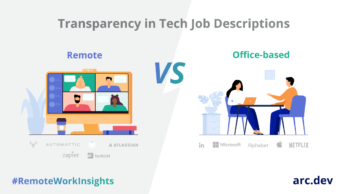💡 If remote work is the future, then the future is happening right now.
With this huge shift in how we work, some developers may be feeling uncertain about the challenges that come with it. The deeper our team thought about the benefits and drawbacks of working remotely, the more questions arose in our minds.
So we decided to reach out to our community of Arc Developers, Codementor Mentors, and friends in the greater tech community to share with us what it’s really like to work as a remote developer.
Some of the questions we asked developers:
- How often do you feel lonely?
- How often do you travel?
- Where do you usually work?
- Is figuring out how to pay your taxes easy?
- What is the most important skill for remote developers to learn?
- When you are working, how do you achieve flow state?
- Do you prefer synchronous or asynchronous communication in your team?
- What is the biggest obstacle preventing companies from adopting remote work?
The responses from our survey debunked some common remote work myths, revealed insights into how remote workers perform their best, and identified some obstacles to mainstream remote work adoption. We hope these findings also help you better understand today’s remote developers’ work habits and experiences.
Looking for top talent fast? See how Arc can help you:
⚡️ Find developers, designers, marketers, and more
⚡️ Freelance or full-time remote + fully vetted
⚡️ Save up to 80% with global hires
Hire top talent with Arc risk-free →
Debunking Three Remote Work Myths
Confronting common beliefs regarding loneliness, travel, and taxes.
#1: Remote developers are less lonely than managers think
Almost half (47%) of developer respondents stated that they rarely or never feel lonely. The growing number of online communities for remote workers as well as company-specific initiatives to promote inclusion seem to be helping address loneliness.
❓: How often do you think remote workers experience loneliness?
MANAGER’S PERCEPTION: Feel lonely at least once a week
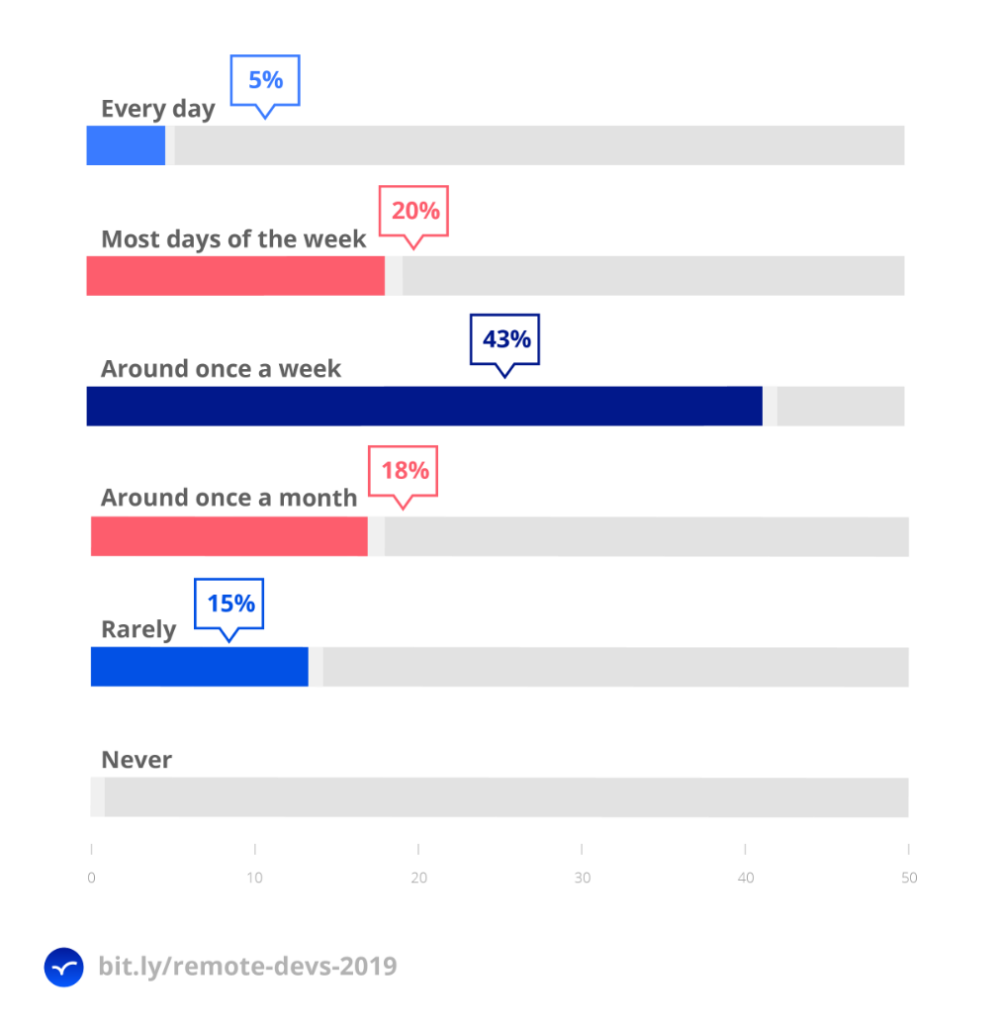
❓: How often do you feel lonely?
THE REALITY: Feel lonely at most once a month
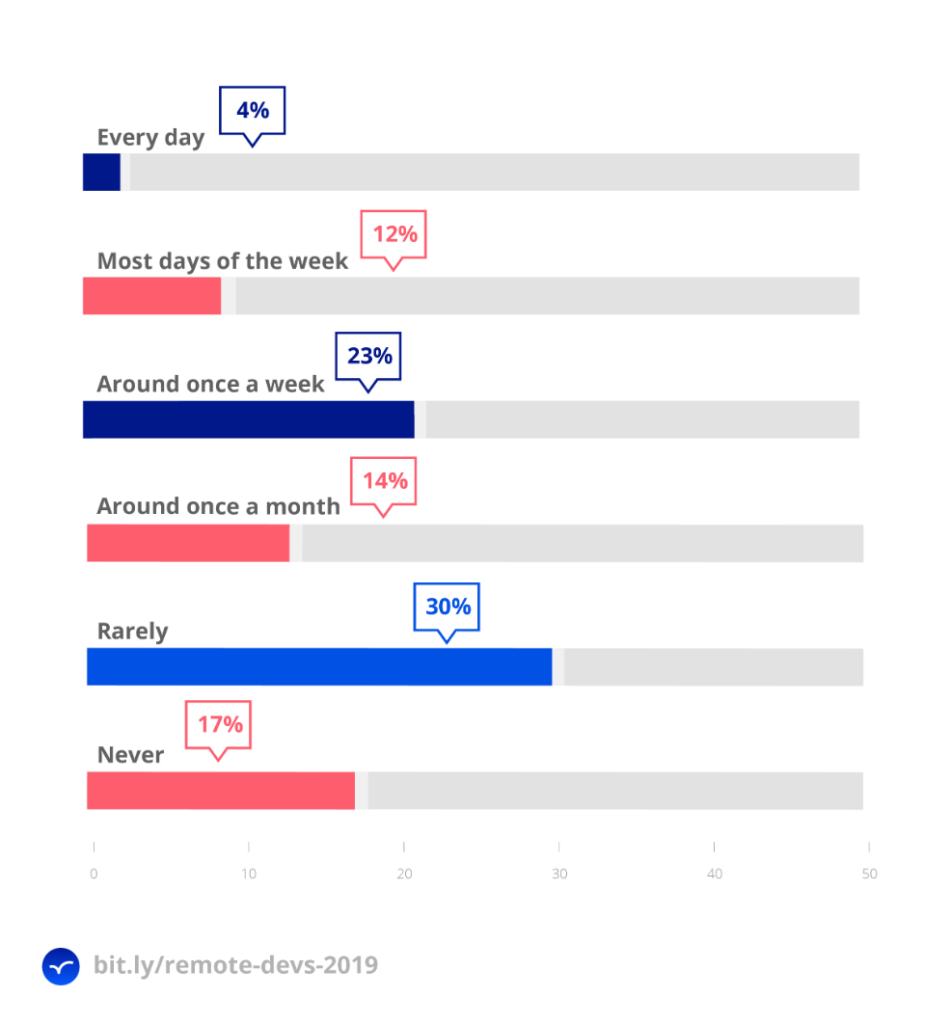
Read More: Remote Developer Stats: Top Benefits and Perks Companies Offer in 2022
You can also try Arc, your shortcut to the world’s best remote talent:
⚡️ Access 450,000 top developers, designers, and marketers
⚡️ Vetted and ready to interview
⚡️ Freelance or full-time
Try Arc and hire top talent now →
#2 Remote developer ≠ digital nomad
Our results showed that 93% of remote developers have a fixed workspace and only 7% are digital nomads who constantly travel the world.
❓: How often do you travel?

Remote = Work From Home: the majority of remote workers not only have a fixed workspace — in fact, 75% of those surveyed actually work from home. Although photos of digital nomads working poolside may flood your Instagram, the home office is more of a reality for most remote developers.
❓: Where do you usually work?
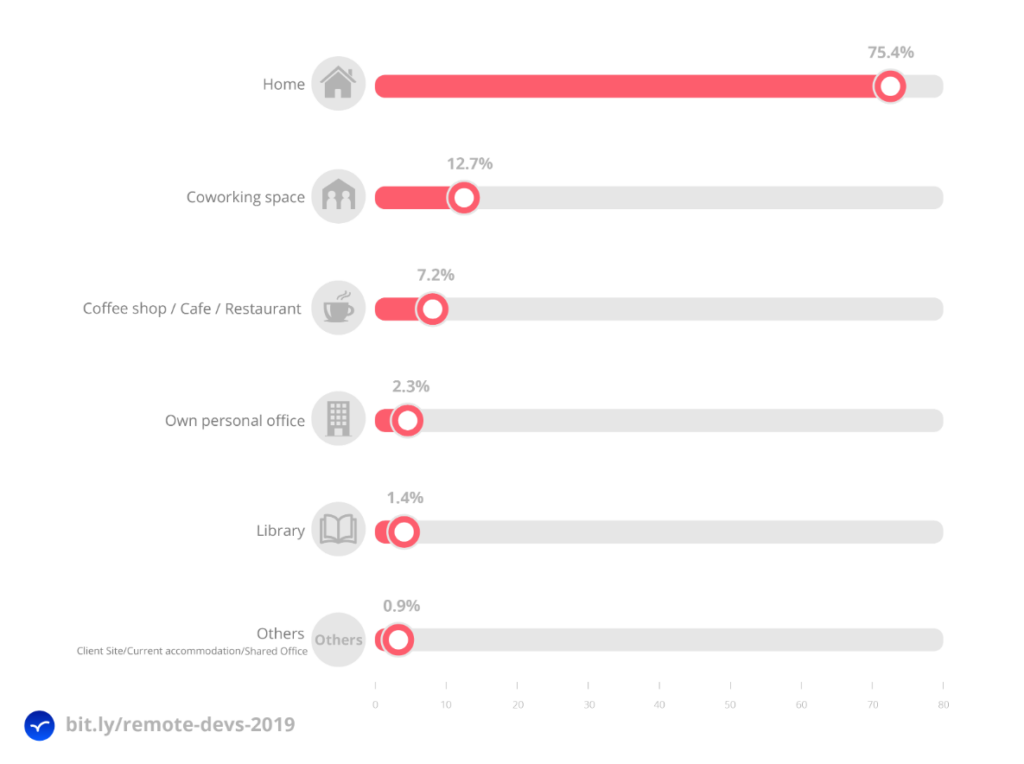
Read More: Transparency in Tech Recruiting: Remote Companies Lead the Way
#3 Dealing with taxes isn’t a significant barrier
Only a small portion (28%) of respondents find dealing with their taxes as remote developers difficult. With numerous step-by-step tax resources, such as this guide for filing taxes as a freelancer (and here’s the guide for the hiring / client-side), remote developers are not over-burdened by this additional paperwork.
❓: “Figuring out how to pay my taxes is easy.”

Growth and Productivity
Understanding career growth and productivity boosters for remote workers.
Soft skills > technical skills
When asked about which skills are essential to their success as remote developers, most respondents said that they wanted to develop their non-technical skills.
When you’re not in a physical office setting, frequent Slack conversations and clear documentation are essential for high-functioning remote teams. It makes sense that remote developers report wanting to improve their communication skills at the top of the list.
❓: What is the most important skill you want to learn to succeed as a remote developer?
(Top 10 Answers)
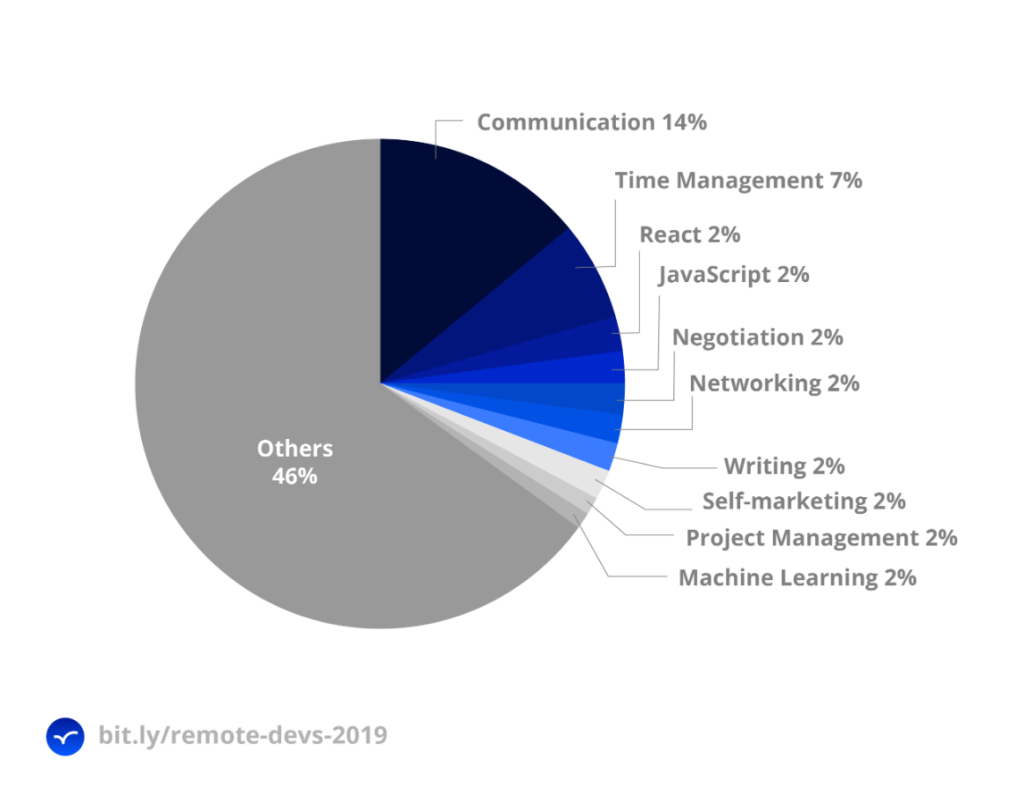
Read More: Best Cities for Software Engineers 2021: A Data-Backed Analysis
Music and the Pomodoro technique are key productivity boosters
24% of remote developers choose music as their key method for achieving a flow state. Put on those headphones, tune in to the “Lo-fi Beats” Spotify playlist (an Arc team favorite), and get into that flow state!
❓: When you are working, what method(s) do you use to achieve a flow state?
(Top 9 Answers)
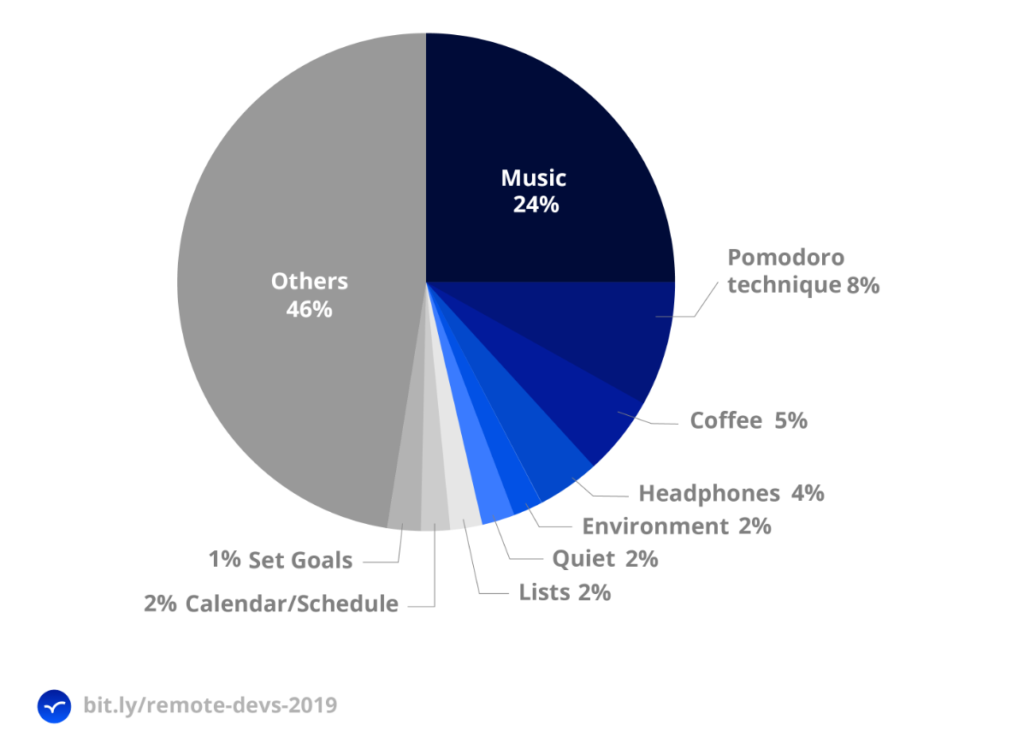
Obstacles to Adoption
Reasons remote work isn’t more popular include the debate over synchronous vs asynchronous communications as well as trust issues. It was almost a 50/50 split on whether having all employees working at the same time or allowing people to contribute on their own schedule is more beneficial for their teams.
❓: Do you believe synchronous or asynchronous communication is more optimal for your team?
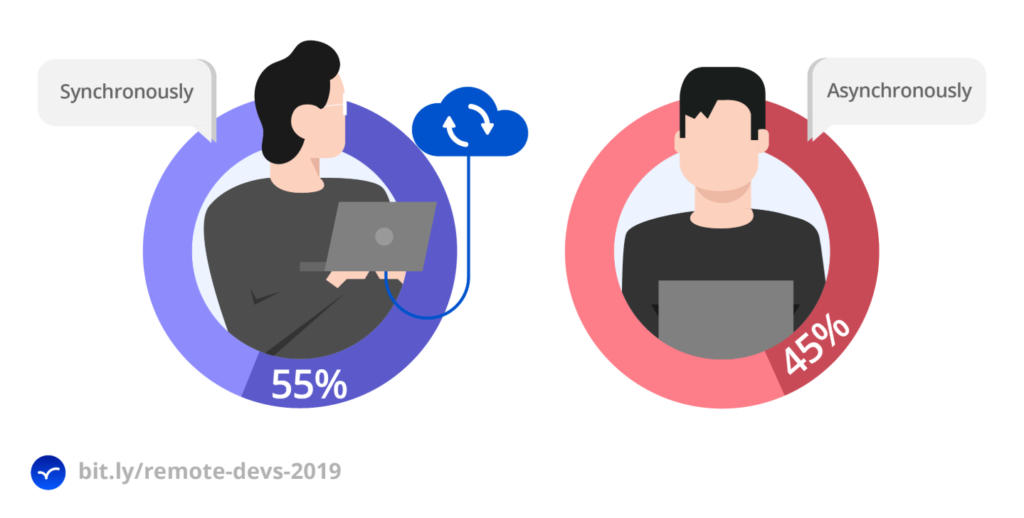
27% of respondents stated that the biggest obstacle preventing companies from adopting remote work is trust.
Read More: We Analyzed 7832 Words from Software Engineer Job Descriptions
❓: In your opinion, what is the biggest obstacle preventing companies from adopting remote work?
(Top 10 Answers)
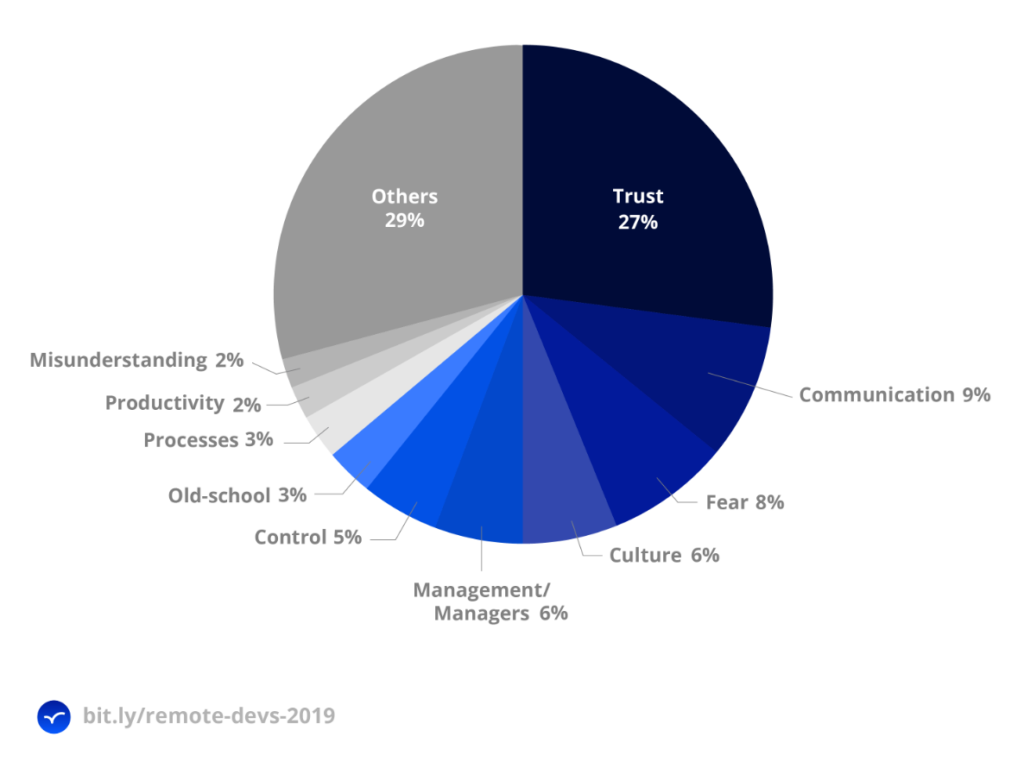
Methodology and Demographics
Our responses are from 385+ engineering managers and remote developers from over 65 countries, with remote work experience ranging from less than 1 year to 11+ years.
❓: How long have you been working remotely?
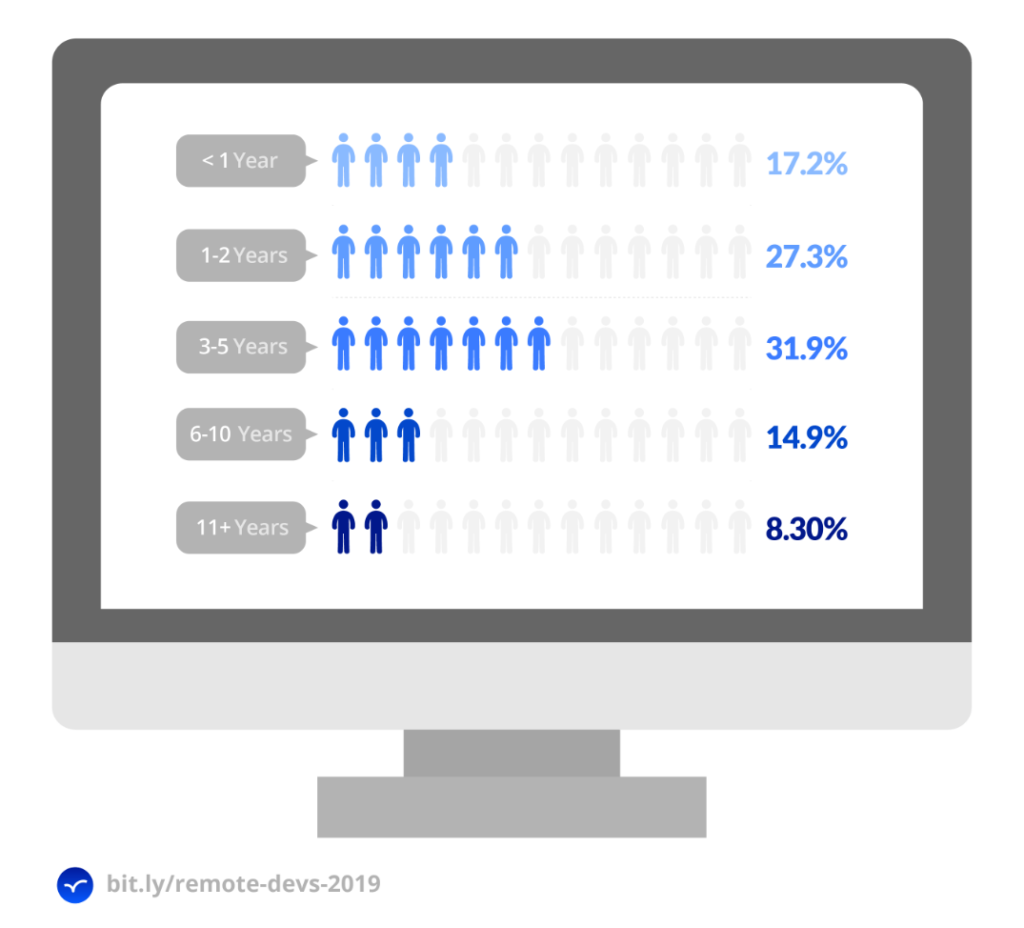
❓: Where are you located?
(Top 10 Answers)
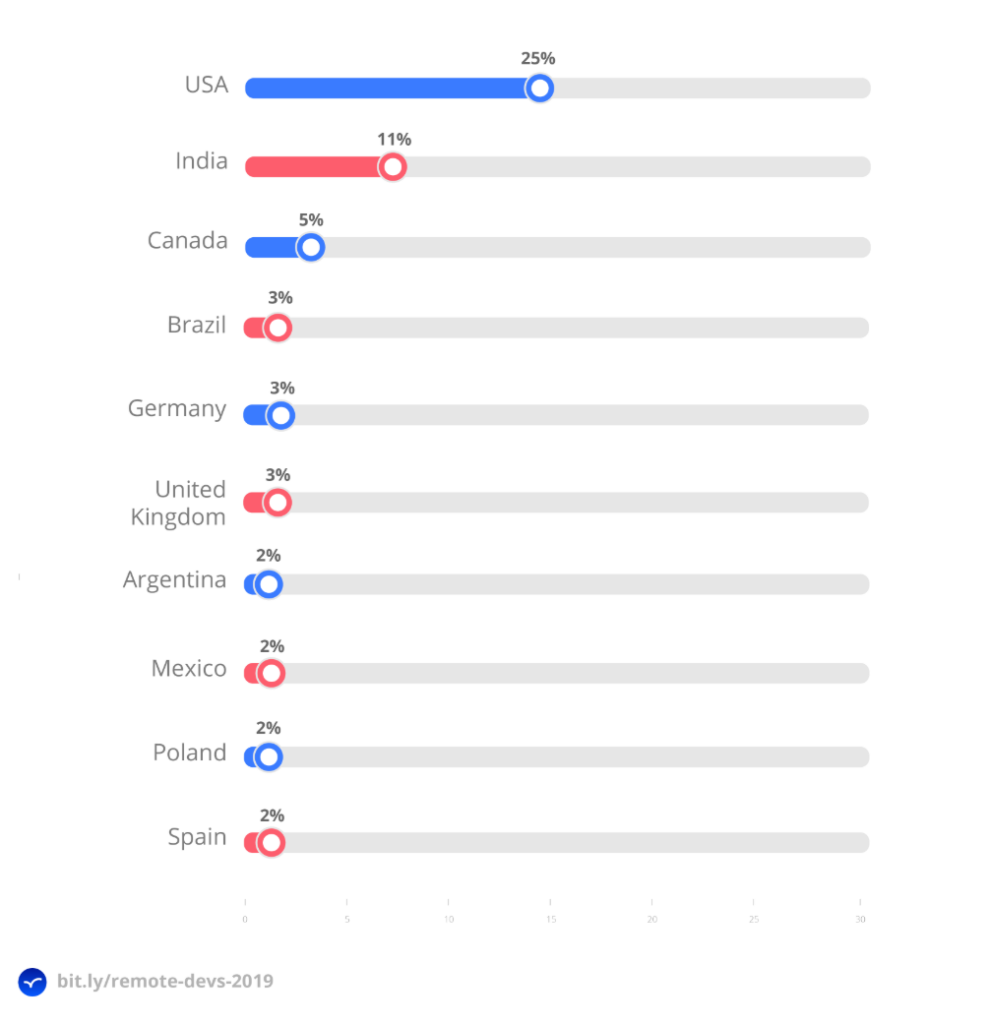
The following age and gender groups were represented in this survey:
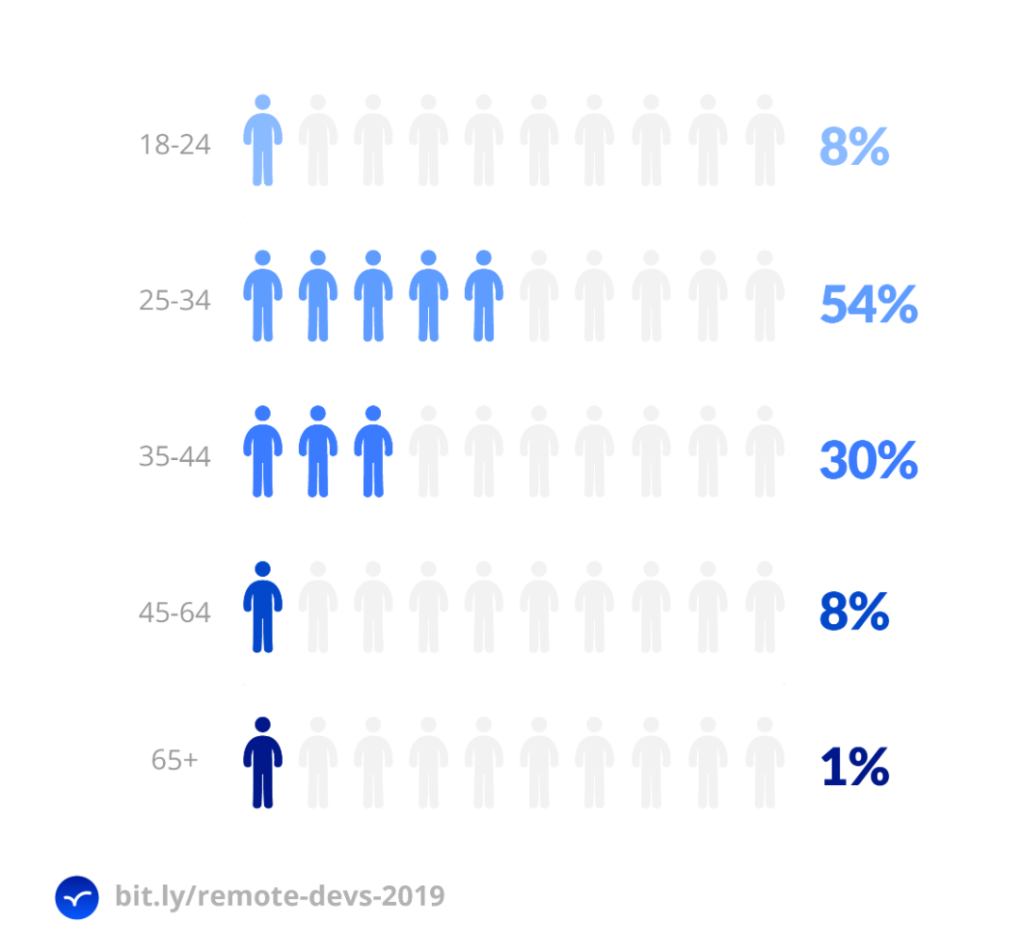
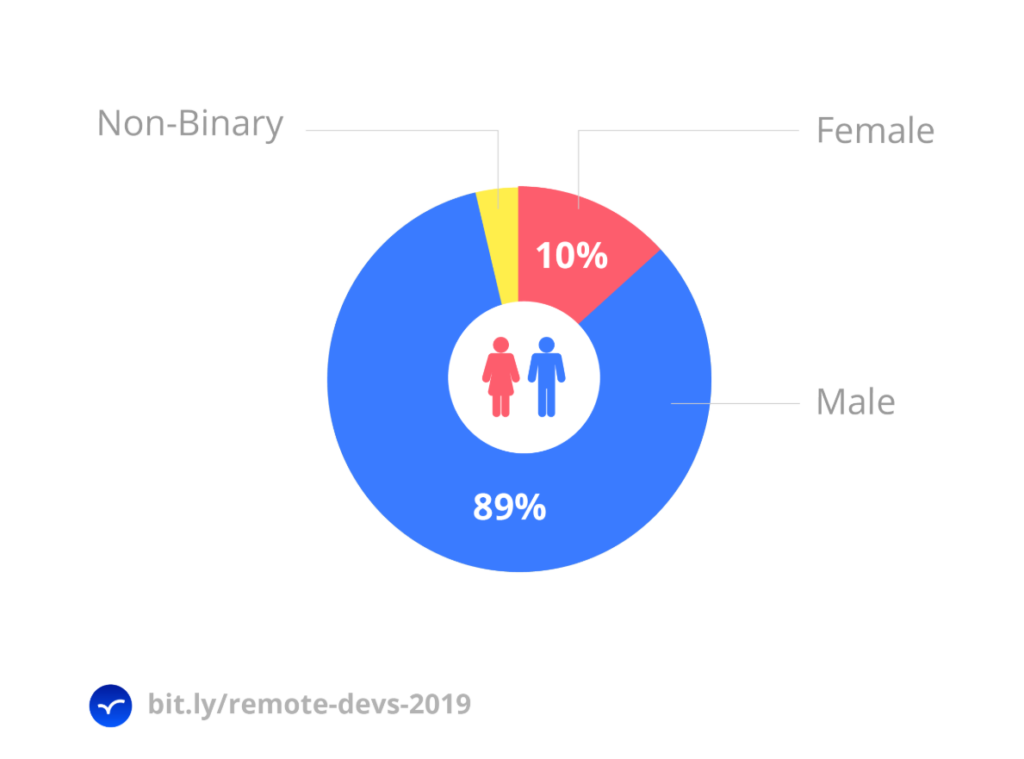
Read More: 20 Best Cities for Launching Tech Startups Outside of the United States
Conclusion
Despite what many people think, loneliness is not the biggest challenge for most remote developers. It’s also a common misconception that all remote workers are constantly on the go. In fact, most of them work from home and only travel a few times per year.
And although the idea of figuring out how to pay taxes as a remote developer may seem daunting, most of them agree that it’s actually pretty easy.
Most remote developers are looking to improve their soft skills as these are essential for their success when it comes to growth and productivity. The top soft skills the developers mentioned are communication and time management.
Staying productive is also crucial, and the most common methods for achieving a flow state in their work include listening to music and using the Pomodoro technique.
As for the obstacles people face in remote work, communication and trust issues can be the most intimidating. As to whether asynchronous or synchronous communication is most effective, opinions on this topic are split almost 50/50. Many teams choose to use a combination of both communication styles depending on the project and work to be done.
Thanks to all of the nearly 400 respondents who took the time to complete this survey and share their experiences with us. If you’re a developer considering making the transition to remote work, we encourage you to join the Arc network.
And if you are looking for a remote developer to join your team, learn more about how Arc can help:
You can also try Arc, your shortcut to the world’s best remote talent:
⚡️ Access 450,000 top developers, designers, and marketers
⚡️ Vetted and ready to interview
⚡️ Freelance or full-time





